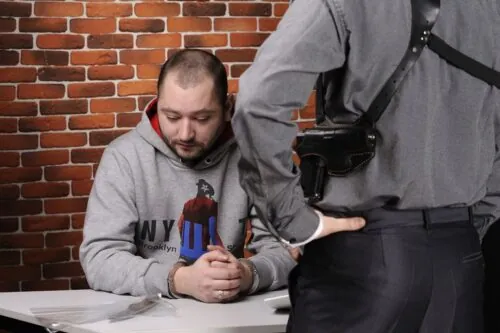
You may very well make it through your entire life without having a serious encounter with the police. If, however, you do find yourself the subject of police questioning, you need to know what you should, and shouldn’t do to protect yourself. With that in mind, a Nebraska criminal defense attorney at Petersen Law Office discusses five things you should remember during an encounter with the police.
- Innocence is not always relevant. One of the first things many people say when discussing how to handle an encounter with the police is “I haven’t done anything so it shouldn’t matter how I handle the encounter or what I say.” That line of thinking has landed an untold number of innocent people in jail – sometimes for a very long time. Whether you are guilty of a crime is irrelevant when you speak to the police. The job of a police officer is to prevent and/or solve crimes. Consequently, a law enforcement officer is suspicious by nature. Saying the wrong thing at the wrong time could put you in the crosshairs of a criminal investigation even if you have absolutely nothing to do with the crime.
- Don’t make the situation worse. It can be nerve-racking to see flashing lights in the rearview mirror or see a couple of police officers standing on your doorstep. Don’t let your fear prompt you to do something that will make the situation worse, such as flee. Likewise, do not resist arrest if the officer places you under arrest. If you are not guilty of the charges, an experienced criminal defense attorney may be able to get the charges against you dismissed; however, if you add fleeing or resisting to those charges you may end up with a conviction anyway.
- Only answer the question that was asked. When some people get nervous they have a tendency to babble. Others just naturally talk a lot in social settings. When you are talking to the police, however, less is definitely more. Only answer the question that was asked of you without elaborating or embellishing. Whenever possible, answer questions with “yes” or “no.” Police officers are trained to try and get people to offer information without the person even realizing they are doing so. Remember that you can always add more information at a later time if you wish to do so whereas you cannot take back information already given.
- Assert your right to remain silent sooner rather than later. You have a constitutionally protected right to remain silent. Beyond basic identifying information, you are never required to answer questions or provide information to the police. It isn’t always clear when the police consider you a suspect nor when the questions might be dangerous for you to answer. With that in mind, it is always better to exert your right to remain silent early on, even if you aren’t sure it’s necessary. Again, you can always decide to talk at a later time after consulting with an attorney.
- Do not hesitate to clarify whether or not you are free to leave. In an encounter with a law enforcement officer, much hinges on your status. Proper procedure, your rights, and the law are all impacted by whether the police officer considers you to be in custody or free to leave. You don’t have to be restrained in handcuffs to be considered in custody which sometimes makes it difficult to tell where you stand. The best way to find out is to simply ask the officer “Am I free to leave?” If the officer says you are free to leave, don’t hesitate to do just that if you become uncomfortable. If the officer says you are in custody, that is usually a good time to make use of your right to remain silent.
Contact a Nebraska Criminal Defense Attorney at Petersen Law Office
If you have been charged with a criminal offense in the State of Nebraska, it is in your best interest to consult with an experienced criminal defense attorney immediately about the specific facts and circumstances of your case. Contact a Nebraska criminal defense attorney at Petersen Law Office 24 hours a day at 402-513-2180 to discuss your case.


